past finalists reveal career-defining journey ahead of LEXUS DESIGN AWARD 2023’
LEXUS DESIGN AWARD continues its mission in 2023: to shape a better tomorrow by supporting and nurturing the next generation of creators together with globally acclaimed mentors. Launched in 2013, the international design competition continues to foster the growth of ideas from up-and-coming creators from around the world. 2022 finalist Chitofarm by Charlotte Böhning and Mary Lempres, and 2020 finalist Feltscape by Théophile Peju and Salvatore Cicero share their uprising experience with designboom and talk about their journey before, during, and after the prestigious recognition from the Platform.
‘Specifically, working on Chitofarm was a very important project that I never would have pursued if it hadn’t been for LEXUS DESIGN AWARD.’ The project allowed me to pull from so many different knowledge bases and to be incredibly creative. It was the most fun I’ve ever had designing. LEXUS DESIGN AWARD showed me the impact I can have in this field,’ mentions Mary Lempres to designboom, co-designer of Chitofarm.
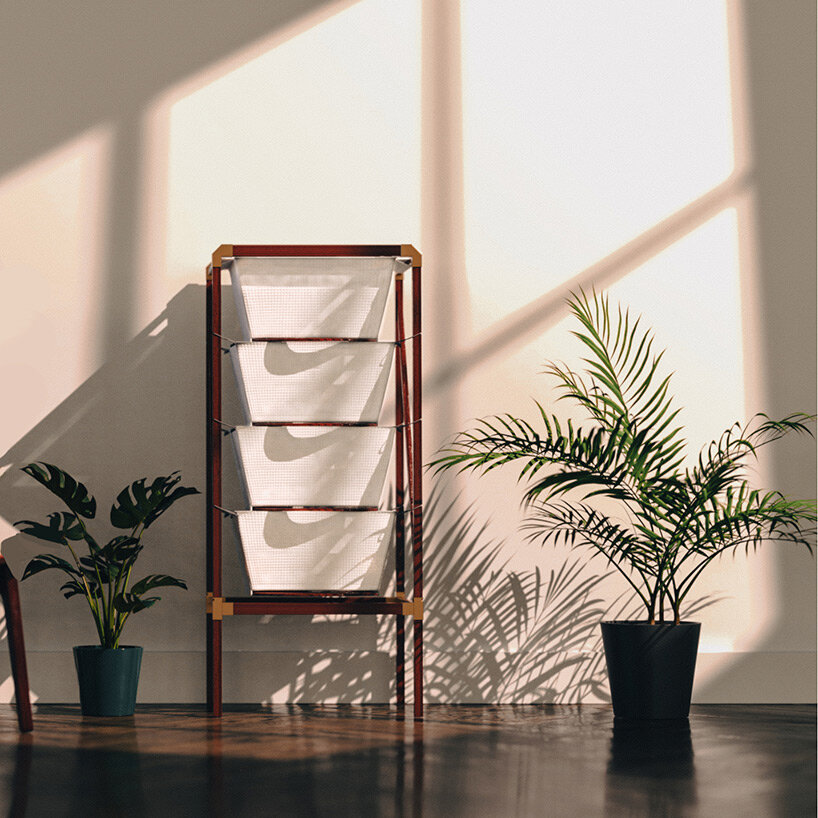
Chitofarm by 2022 finalists Charlotte Böhning and Mary Lempres
As every year since its foundation in 2013, finalists are selected amongst thousands of entries. Funding to create prototypes, exhibitions, and professional advice from experts of various fields are only some of the invaluable assets that LEXUS DESIGN AWARD offers. More specifically, the Awards Platform offers the unique opportunity for each final entry to work with a globally recognized creator, which as their mentor, helps them into prototyping their ideas, as well as guiding the project from the beginning to the final review. Moreover, the Competition grants valuable exposure of the winning works through global media
To promote and go over the valuable benefits of the award, Lexus sets up an orientation webinar on September 16 and 21, inviting creators around the world who may be interested in applying in order to get a deeper understanding of its purpose and features. Past award winners are also joining to talk about their personal journeys after the success.
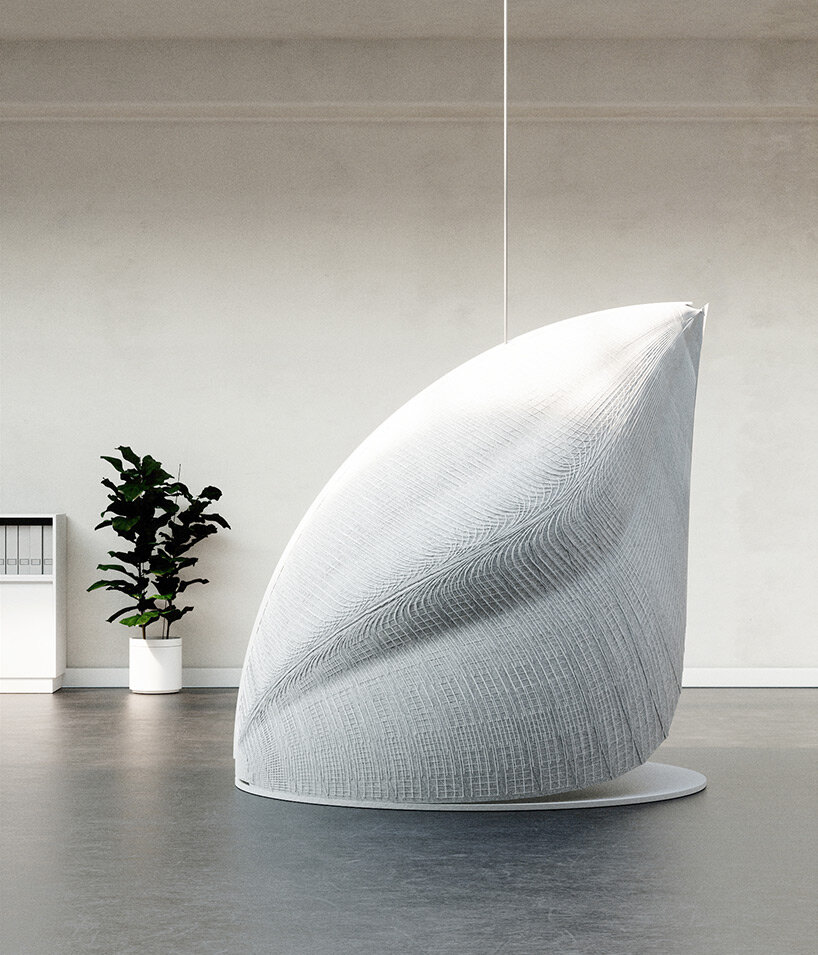
Feltscape by 2020 finalists Théophile Peju and Salvatore Cicero
from an academic project to an international finalist
Set to join the webinar, Italian and French Architects Théophile Peju and Salvatore Cicero met at the UCL Bartlett School of Architecture, and the rest is history. From an academic project to an international finalist, Feltscape pushed the two designers to exceed boundaries between research, societal issues, science and design. With the professional feedback and help from the LEXUS DESIGN AWARD, Théophile and Salvatore succeeded in bringing their project into the commercial world.
‘Feltscape is the meeting between a research pursued at the UCL on soft materials and a growing concern on mental health issues in our societies. Feltscape was then a flexible cocoon that was gently stretching and contracting to describe a relaxing respiration pattern. Feltscape’s design was inspired directly by the user experience. Then our design inspirations were coming from the scientific world. For the pod atmosphere we were mesmerized and influenced by lung anatomical drawings or satellite views of cloud formations. The soft material composition was inspired by the iris petal structure, offering different stiffness and behavior in a single entity. We always tried to think out of the code of the design world,’ Théophile Peju and Salvatore Cicero.
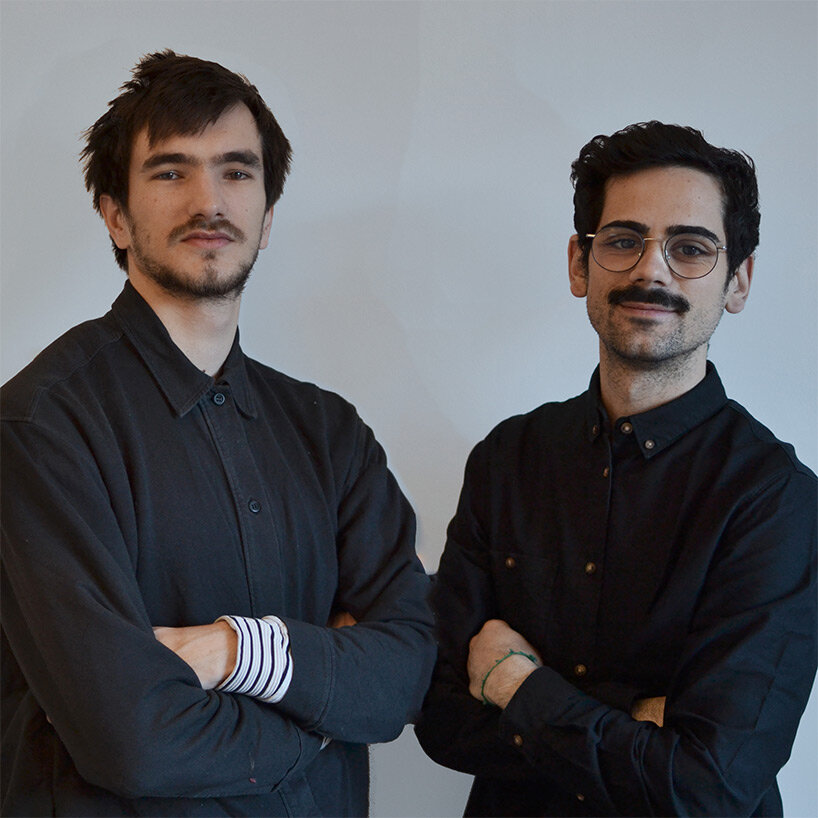
Théophile Peju (left) and Salvatore Cicero (right)
Feltscape by Théophile Peju & Salvatore Cicero
Feltscape is a breathing cloud that fosters the philosophical idea of isolation. It is made of felt and recycled bio-plastic with an innovative robotic fabrication process, and by the implementation of sensors and kinetic mechanisms, the cloud follows the visitor’s breath. The membrane rhythm gradually accelerates or decelerates guiding the occupant to inhale/exhale slower.
‘LEXUS DESIGN AWARD has been resilient and always tried to support us in the best possible way. We would not be more grateful to Lexus for this lifetime opportunity. Our life will always be influenced by this award,’ add Théophile Peju and Salvatore Cicero, designers of Feltscape.
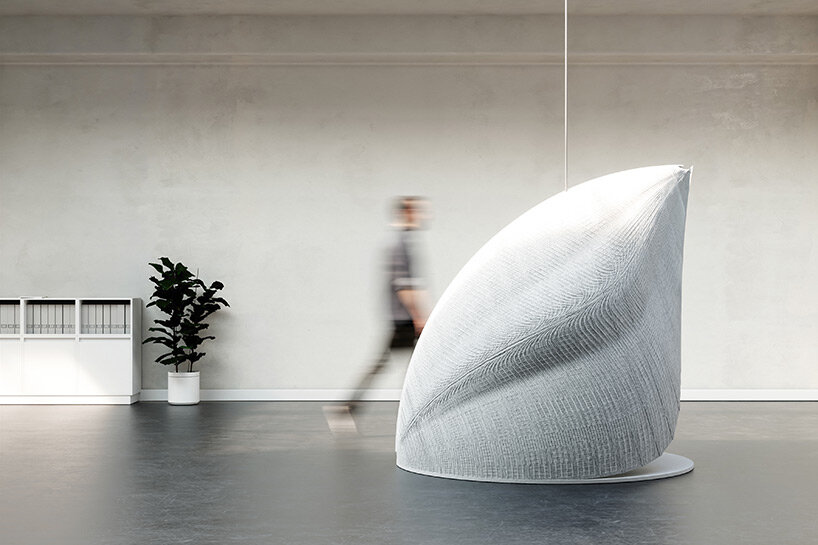
Feltscape is made of felt and recycled bio-plastic with an innovative robotic fabrication process
According to the two creators, the mentoring program was key to the development of their project. As they were exposed to the many talented designers and experts that were part of the judges, the evaluated guidance soon brought the breathing cloud to the finalists.
‘The mentoring program was key to the development of Feltscape. We have been working with exceptionally talented designers and because of that we understood the importance of design in society. When we got shortlisted for LEXUS DESIGN AWARD, our Feltscape was mainly an innovative technology. When we started our journey with Lexus, thanks to our mentor, we speculated on the potential of our work and the way this could make a difference in our society. Feltscape became a breathing cloud that fosters the philosophical idea of isolation,’ they add.
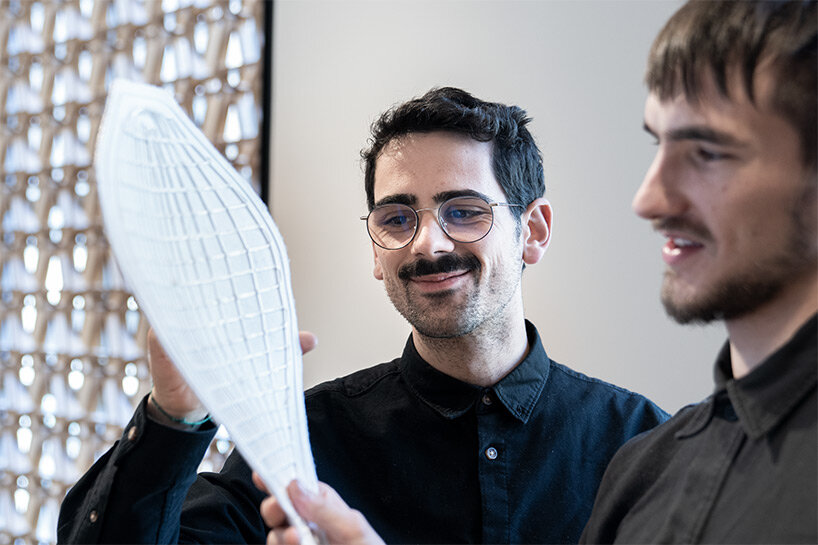
Feltscape by Théophile Peju and Salvatore Cicero is an ongoing research on disruptive design and fabrication techniques
Feltscape is an ongoing research on disruptive design and fabrication techniques for tackling mental health issues. Adaptable, flexible and customizable, the project’s philosophy has also been applied for hotel rooms, co-working pods, and more all thanks to the resiliency of the Competition Platform.
‘An amazing panel of mentors, judges, and staff guided us along the journey. This experience has been full of surprises and, with the other finalists, we have been supporting each other to give our best, in spite of the unfortunate circumstances,’ conclude Théophile Peju and Salvatore Cicero.

